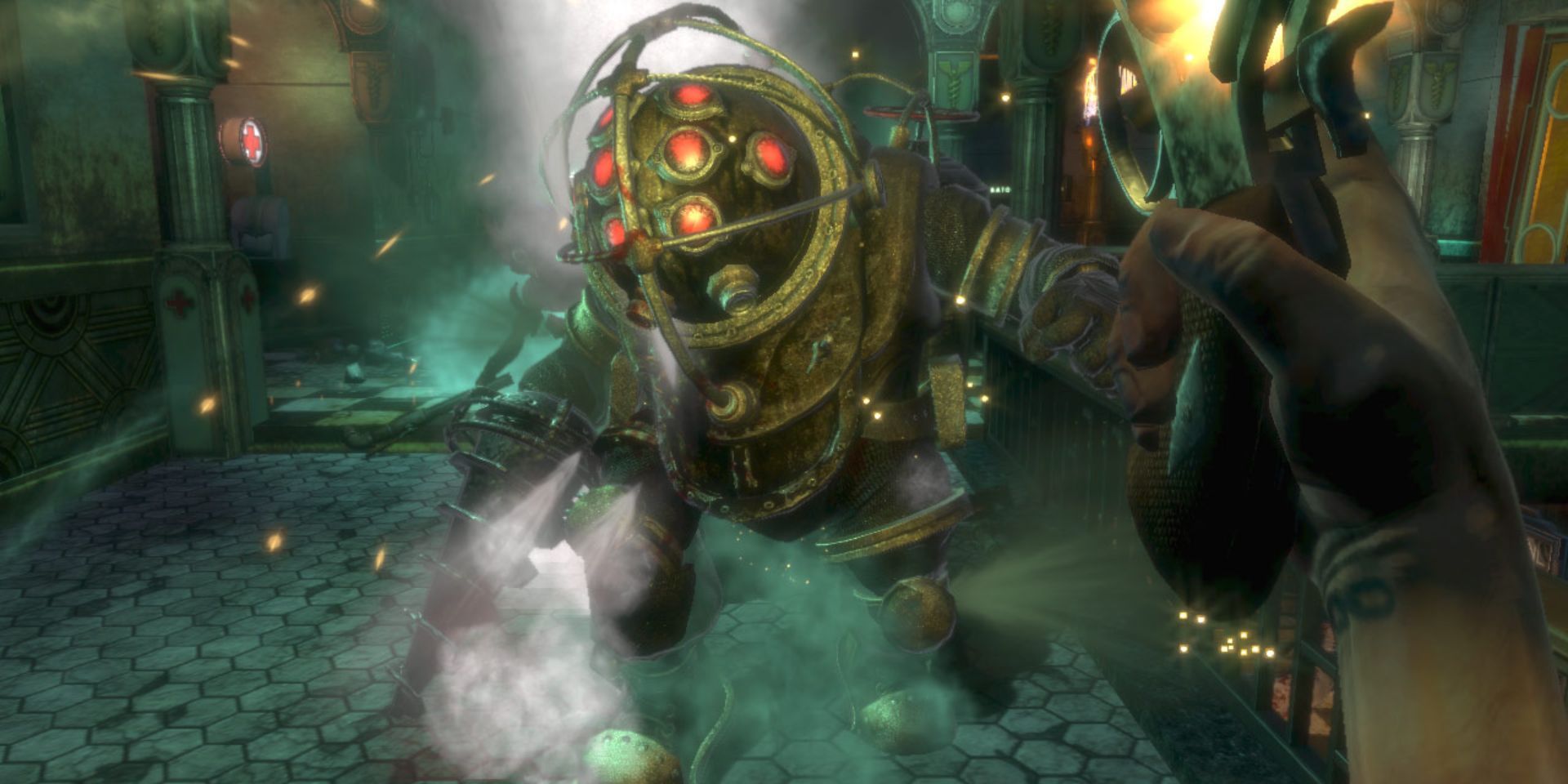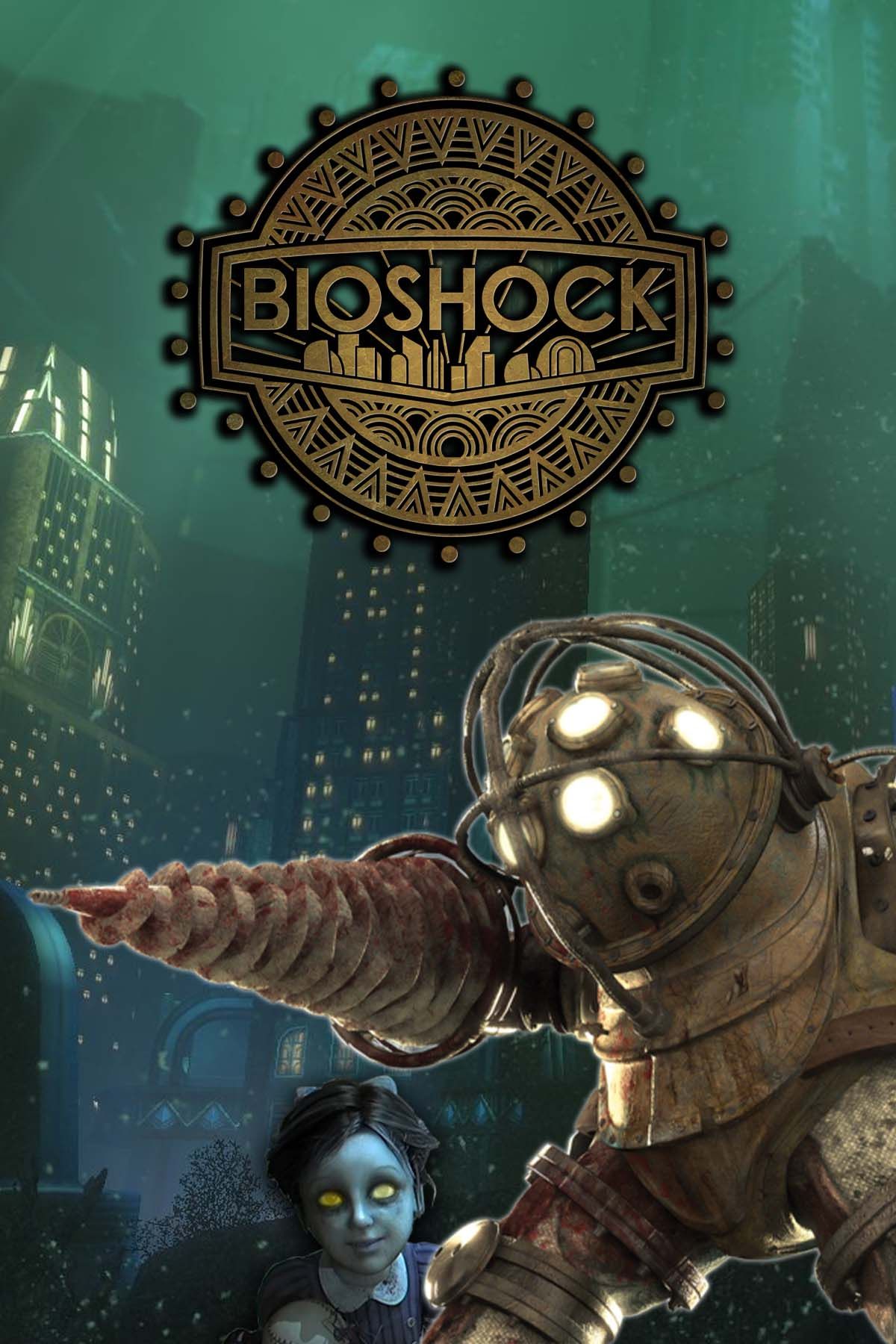With BioShock 4 and Judas both on the horizon, fans of the classic BioShock games and action-oriented immersive sims ought to be excited. That being said, it's only natural that Judas will be compared to BioShock 4, with the former being seen as a sort of spiritual successor to BioShock Infinite thanks to the involvement of Ken Levine, former creative lead of the franchise. This unavoidable comparison, coupled with the prestigious history of the BioShock IP, means that BioShock 4 has its work cut out for it.
Similar to what Microsoft did with 343 Industries and Halo, 2K Games created Cloud Chamber with the express intention of carrying the BioShock series forward. Since BioShock 4 will be the first game from this creative unit, it stands at a crossroads: it can either attempt to emulate one or more of the older BioShock games, or it can try something radically new, establishing both the game and the team behind it as fresh and distinct. Living in the shadow of such an iconic and influential franchise, the latter path might be tougher to travel, but it would be well worth it.
BioShock 4 Can Be Unique By Taking a New Approach to World-building

BioShock 4 Could and Should Go Low-Tech
Science-fiction elements have always been present in BioShock, with both Rapture and Columbia adhering to many of the most common soft-sci-fi narrative conventions, such as loosely defined superhuman powers, extensive body modification and enhancement, and radical government and city planning. However, advanced technology isn't inextricable from the series' themes and overarching narrative. Rather, the high-tech of Rapture and Columbia is used as a tool to explore different narrative ideas.
BioShock is all about examining morality, ethics, and human psychology through the lens of otherworldly and bizarre dystopias. For a long time, and especially since the 19th century, human progress has been measured by technological advancement; the steam engine, automobiles, and more efficient medical practices are all part of this advancement, and BioShock explores all of these things. But technology isn't the only way to measure human advancement, nor is it the only route that a delusional leader like Comstock or Ryan would take when devising a twisted utopia.
Spirituality and the rejection of modernity appeal to many, and for good reason. BioShock Infinite challenges religious fundamentalism but retains many of the science-fiction trappings of the first two games, albeit with a different, more steampunk-shaded coat of paint. BioShock 4 could take things in a different direction, showing what can happen when someone uses broad concepts like simple living and Eastern philosophy for perverse or selfish ends. Basically, the game could swap out the art deco halls of Rapture and the Americana-laden streets of Columbia for the natural and isolated beauty of a commune.
Much like how Rapture is modeled after Randian Objectivism and Columbia follows ideals like American exceptionalism, BioShock 4 can draw inspiration from extreme real-world ideologies and spiritualist cults like Rajneeshpuram.
BioShock 4: Carving a New Path
Taking a more low-tech approach could make Bioshock 4's setting intriguing and refreshing, as this framework would be a significant departure from the previous games. Perhaps even more importantly, though, this different setting and thematic framework would set the game apart from Judas, which seems to be going even higher with its tech, featuring tropes like space travel and androids. If BioShock 4 was to swap out guns for melee weapons and questionable scientific advancements with questionable spiritual ones, it would do a lot to support this differentiation.
BioShock 4 will already be under scrutiny as the next game in the series, developed by a different creative team—it doesn't need additional comparison to Judas. Judas can explore the stars; meanwhile, maybe BioShock 4 can come back down to Earth.

Bioshock 4
Franchise BioShockPlatform(s) PS5 , PC
Developer(s) Cloud Chamber
Publisher(s) 2K Games
Genre(s) FPS





